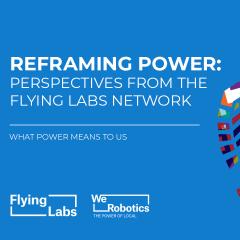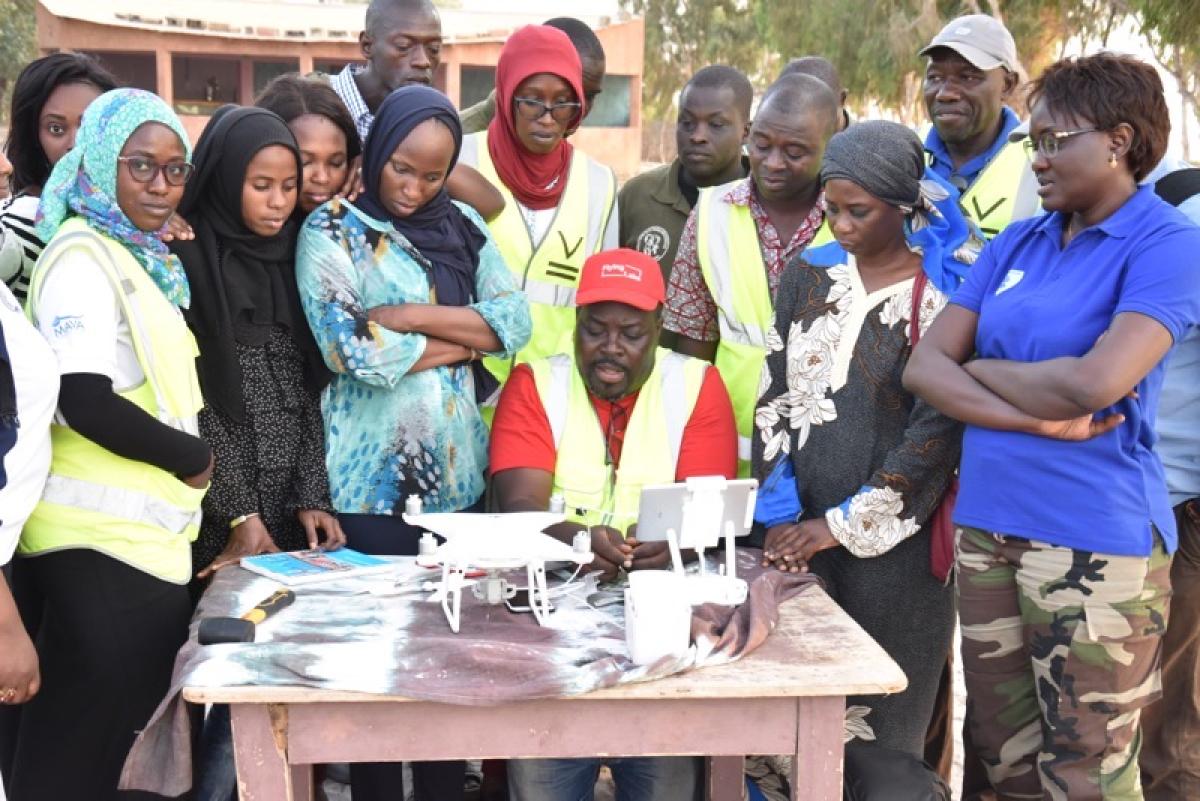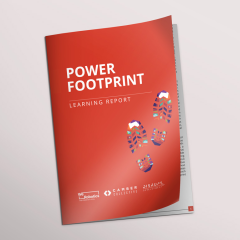
When Locals Question Local Expertise
June 23rd, 2022

WeRobotics is a social impact organization that brings together proximate leaders, activists, and communities to offer practical alternatives to systems dominated by foreign-led and top-down interventions. By shifting power with local experts and organizations, we are redefining what it means to be an expert. We believe that expertise should derive first and foremost from local knowledge and lived experience rather than skin color, technical expertise, or unique connections. So what happens when local communities question this definition?
We've heard directly from local organizations across the Flying Labs Network about the suspicion and discrimination they face "from our own people." The idea that the expert is, by definition, the foreigner (the Western white male, to be precise) is deeply rooted. We hear from Flying Labs that some rural communities they speak with don't believe locals can lead nongovernmental organizations (NGOs). In their minds, NGOs can only be led by white foreigners. This is why some local communities are deeply suspicious when they meet an NGO that is fully locally-owned and led.
Below we share excerpts from a recent conversation with one Flying Labs.
"They tell us that because we are black like them, we cannot be leaders. We cannot be running our own organization. We are black, so we must suffer like them. They don't believe that we can do anything out of the goodness of our hearts."
It sounds like some of them believe that locally-led NGOs are a scam. So how does one change their minds?
"We take time to educate local community members, we introduce ourselves, share our own stories, and what we've done with our organizations. We show them that we have no hidden agenda, that we are genuinely trying to help. But this doesn't always work, it takes time. For some people, seeing a locally-led NGO like ours is just too far from the ordinary. They can't believe that normal people like us are genuinely committed to helping, to doing something for good. That is seen as the role of foreigners. So there is a lot of skepticism and mistrust."
What happens if you mention that you are part of a network of local organizations called the Flying Labs Network? What is the reaction when you share that there are 30+ other locally-led Flying Labs around the world? Does it change anything when you mention this global connection?
"When they hear about our global connections, we get more credibility, but that shouldn't be needed. We have expertise and this expertise should be valued regardless of whether or not we have global connections. The conversation definitely changes after we talk about our global connections to other Flying Labs. People tend to listen more. But if a white person with another NGO then walks into the conversation, they automatically listen to them instead. What a foreigner says is automatically good. When this happens, any further input we contribute is minimized. People just want to listen to foreigners."
This must take a personal and psychological toll.
"Well, it's not nice to be directly undermined or questioned by the very people who are trying to help. It is so condescending."
What message would you want to give to foreigners and foreign-led organizations that come into your country?
"Much of the help being brought from elsewhere is appreciated. At the same time, ignorance tends to water down these noble efforts. Locals know their own customs best along with their ways of living, which in turn informs their behavior and conduct. Without including locals, even the best intentions from foreign-led projects may end up causing an insult even though well-meant. In the case where foreign aid is being delivered, local experts should be the ones to take the lead in the implementation of this aid. And where possible, these initiatives should be done by locals for locals without prejudice.
Our societies need to be better educated and encouraged to give local experts and leaders the benefit of the doubt. We all pay the cost of refusing to acknowledge local expertise and ingenuity.
At the same time, the problem is much more vast than the local context. It seems to extend to racial, national, and regional divides. In instances when funding is obtained for a project in a particular region in a country where none of the national experts engaged in the project are from that specific region, their motives are equally questioned, especially when it comes to technology-driven projects, where suspicion becomes rife as the direct beneficiaries suspect 'masked' sabotage and hostility to be the sheer driving force behind the intended aid. It is essential to be skeptical and question foreign experts; otherwise, these are double standards. Foreign experts are given the benefit of the doubt, so now give local experts the benefit of the doubt and give them a chance to prove themselves.
Meanwhile, valuable cooperation efforts between neighboring countries are sometimes seen as far less important than foreign-led efforts from the West. This is especially true when cross-border efforts do not include any experts from the Global North as the face of these initiatives. The consistent undervaluing and disregard of fellow professionals and leaders in the region sometimes leads to delays and/or abandoned projects. Our societies need to be better educated and encouraged to give local experts and leaders the benefit of the doubt. We all pay the cost of refusing to acknowledge local expertise and ingenuity, which is added to the price of foreign-led social good efforts that ultimately do not make the intended impact. Local communities—the ones who sometimes resist local expertise and leadership most strongly—bear many of these costs."
Recent Articles

